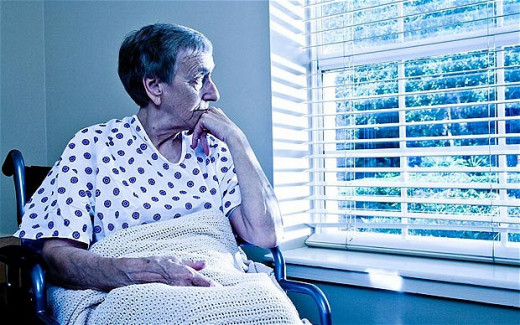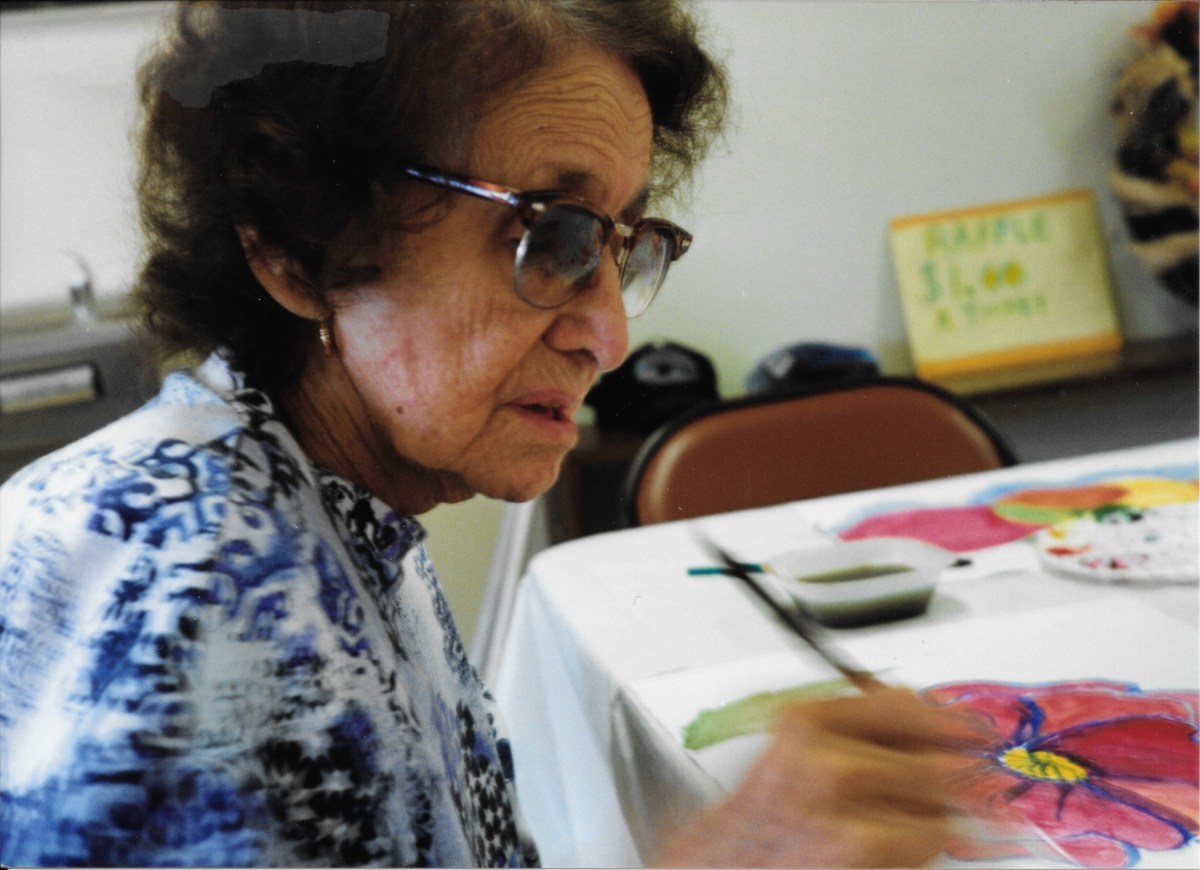How to Recognize the Symptoms and Find Ways to Overcome Depression
It is not commonly known, and for some, it is surprising that there is a considerably high rate of suicide among senior citizens.Studies on depression have shown about twice as many women than men are likely to attempt suicide, but that men are four times more likely to succeed in taking their own lives, most typically by way of using a firearm. It is a sobering fact. Needless to say, depression is a serious issue requiring careful attention.
The stigma that seems to be attached to depression may contribute to its lack of treatment, as well as unnecessary escalation of symptoms and potentially reduced quality of life. Seniors tend to believe depression is “just part of growing old,” and think they should be able to just shake it off or get through it on their own, and don’t ask for help, perhaps because this belief was passed along by their own parents and grandparents, and naturally accepted, but this is an outdated perception. Times have changed and scientific research has indicated depression is a serious medical condition that can be treated effectively, just like many other medical conditions. Left untreated, however, depression can grow worse and continue for years, dramatically affecting the way a person interacts with others, dramatically reducing quality of life. It can affect one’s ability to socialize and may even cause a sufferer to feel afraid to go places where there are other people, as their feelings of self-worth have diminished. It can also begin to affect how one functions physically.

Isolation and illness may decrease mobility which can compound the problem, bringing on additional physical ailments, such as chronic pain, which can alone be a factor in worsening depression. It must not be forgotten or “swept under the rug” that depression can result in suicide, therefore, it is crucial the people closest to seniors at risk become more aware of the catalysts for depression and the signs depression may already exist in their loved ones, friends and neighbors. This article will outline many of the stressors senior citizens face, first as a list, then one at a time, while commenting upon the signs and symptoms to look for in a person who may be depressed. At the end of the article, a list of self-help ideas to help seniors overcome or prevent depression will also be provided.
The following is a list of many of the common stressors senior citizens experience that can lead to depression:
- Living alone due to the loss of a loved one
- Loss of friends and the difficulty adjusting to them being gone
- How illnesses, surgeries, and extended hospitalization can affect the elderly
- Rehabilitation and living in new surroundings
- Loss of freedom and loss of control
- Decisions about retirement and Medicare
- Isolation and the loss of a sense of purposefulness and loss of support
- Chronic pain, insomnia, and alcohol abuse as they pertain to depression
- Poor social support due to isolation, no longer seeing people at work, friends
- Pain or chronic pain, arthritis pain and mobility, being unable to do what used to be easy
- Alcohol use or hidden alcoholism, drug abuse, self-medicating as a coping mechanism

Living Alone Due to the Loss of a Loved One
The loss of a loved one may very well be the most difficult transition as senior citizen will face. The change can result in overwhelming feelings of grief, which are part of a natural and healthy response. A feeling of sadness may prevail for a long time, but with time, there will also be times of joy and happiness here and there in between. The loss of ALL hope and joy, however, is not a normal response and could be the sign of a major depressive disorder, or depression.
Adjustment is difficult for most people, to some degree, but senior citizens are often faced with a great deal of change and no coping skills to get through it. They may want to want to give up, instead. They may not want to live after losing their spouse and find adjusting to a life of living alone too much to bear. They may not want to cook or eat alone. They may withdraw from their old routine quite suddenly and not find new engaging and enjoyable activities to replace it. Life is no longer interesting.
Loss of Friends and the Difficulty of Adjusting to Them Being Gone
Seniors also lose friends, not just in the close emotional bonds enjoyed with their spouses, but in others, too; people they have known much of their lives. As they near the upper age groups, seniors can sometimes experience the loss of several friends in a short period. This may be overwhelming. Without coping skills, it can be incredibly difficult to bear.
Seniors who have lost a loved one may stop going to the places they used to go with their spouses, the very places they often met and did things with their closest friends. “Putting on a smile” can then feel too hard to do. The loss of several friends in a short time can cut off ties and result in isolation. Even a perfectly healthy person would become somewhat depressed when suddenly faced with the deaths of family and friends, yet the elderly often do not ask for help. They believe, as their parents and grandparents may have believed, that “it is just part of growing old.”
How Illnesses, Surgeries, and Extended Hospitalizations Can Affect the Elderly
Seniors are susceptible to many illnesses, including cancer and heart disease. Some of these may demand changes they do not want to make. The sudden discovery of an illness, such as cancer, can change their way of life entirely. They may require invasive surgery and a long recovery with rehabilitation. Breast cancer survivors may have to adjust to losing part of or both of their breasts. Prostate cancer survivors may have to adjust to a life without being able to have an erection. Changes like these are closer to traumatic than they are dramatic. Some cannot cope with how their bodies look after surgery that may experience extreme difficulty accepting life on life’s terms. Many become depressed.

Loss of Friends and the Difficulty of Adjusting to Them Being Gone
Seniors also lose friends, not just in the close emotional bonds enjoyed with their spouses, but in others, too; people they have known much of their lives. As they near the upper age groups, seniors can sometimes experience the loss of several friends in a short period. This may be overwhelming. Without coping skills, it can be incredibly difficult to bear.
Seniors who have lost a loved one may stop going to the places they used to go with their spouses, the very places they often met and did things with their closest friends. “Putting on a smile” can then feel too hard to do. The loss of several friends in a short time can cut off ties and result in isolation. Even a perfectly healthy person would become somewhat depressed when suddenly faced with the deaths of family and friends, yet the elderly often do not ask for help. They believe, as their parents and grandparents may have believed, that “it is just part of growing old.”
How Illnesses, Surgeries, and Extended Hospitalizations Can Affect the Elderly
Seniors are susceptible to many illnesses, including cancer and heart disease. Some of these may demand changes they do not want to make. The sudden discovery of an illness, such as cancer, can change their way of life entirely. They may require invasive surgery and a long recovery with rehabilitation. Breast cancer survivors may have to adjust to losing part of or both of their breasts. Prostate cancer survivors may have to adjust to a life without being able to have an erection. Changes like these are closer to traumatic than they are dramatic. Some cannot cope with how their bodies look after surgery that may experience extreme difficulty accepting life on life’s terms. Many become depressed.
How Illnesses, Surgeries, and Extended Hospitalizations Can Affect the Elderly
Seniors are susceptible to many illnesses, including cancer and heart disease. Some of these may demand changes they do not want to make. The sudden discovery of an illness, such as cancer, can change their way of life entirely. They may require invasive surgery and a long recovery with rehabilitation. Breast cancer survivors may have to adjust to losing part of or both of their breasts. Prostate cancer survivors may have to adjust to a life without being able to have an erection. Changes like these are closer to traumatic than they are dramatic. Some cannot cope with how their bodies look after surgery that may experience extreme difficulty accepting life on life’s terms. Many become depressed.
Rehabilitation and Living in New Surroundings
Seniors who suffer an illness do not always “bounce back” as well as their families would hope, and despite lengthy rehabilitation, never return to their former selves. They may require assistance when they walk and have to learn how to ask for help for the first time in their lives to do the most basic of things, like stand up or cross the room. They may have to learn how to use a cane or walker, which may symbolize old age. Some may be confined for the first time to a wheel chair or scooter. Their self-image may be affected. They may feel they have become “old,” and rather rally for strength and further healing, accept it as it is, falling into a lengthy depression.
Still others suffer fare more humiliating changes as a result of illness or surgery and can no longer feed or bathe themselves, or use the bathroom without assistance. Depression is common for seniors who face such changes and many want to give up, feeling they are a burden. This depression can contribute to their decline.
As mentioned previously, some seniors may begin to feel like they have become a financial burden. It is no secret nursing homes and assisted living centers are expensive. Though it is common in some countries for multiple generations to live under one roof, it is not typically so in the United States. Instead, the care of the older people in our families is passed along to care providers. Seniors can feel unwanted, forgotten and worthless. They may view their new surroundings as “the end.” Depression is often most prevalent.
Loss of Freedom and Loss of Control
Senior citizens do not only lose the control of many of their physical functions as mentioned above. They can lose their freedom too. Getting up in years, physical changes, and illnesses may make it impossible for a senior citizen to be able to continue to drive. They may suffer degenerative diseases and cataracts that affect their vision. Losing the ability to drive, makes seniors dependent upon others to take them places, such as the grocery store, the post office, or the pharmacy. The resulting in loss of freedom can bring on a range of emotions, from anger, to feelings of worthlessness and the desire to give up. Sometimes, as senior citizens age, they lose cognitive skills and mental acuity due to illness. Their often suffer from loss of memory, particularly short-term memory, and can become confused even in familiar locations. Many elderly suffer from dementia.
Families in situations like these are forced to make difficult decisions as the elder members of their family grow more confused and disoriented. Some have to take legal action; and that can feel wrong, as though it is sign of disrespect somehow. It’s hard for the family to see grandpa slowly disappear. Still, they must make tough choices, like asking grandpa, the family “rock”, how he wants it to go later, before he is delusional or unable to make sound choices. They have to ask who he would like to have the “Power of Attorney” and who he would prefer to be “Executor,” of his will, among other things. Or in other cases, grandpa may have to bring these facts to an attorney to have paperwork drawn up. He may have to leave messages for them to be read after he is gone.
These are highly emotional times for families. Some families are suddenly faced with the fact their loved one cannot manage his home, property, accounts, businesses, projects, and policies any longer. Many family members argue and fight. Sometimes arguments lead to resentments that tear families apart.
Decisions about Retirement and Medicare
When a man faces his retirement, he may choose to avoid it, working well into his seventies, as though retirement meant failure, calling it quits or, a death sentence. Retirement, a time so often referred to as “the golden years,” may seem quite different once the time arrives. A man may feel he has nothing to do, no purpose, no routine, no reason to get out of bed in the morning. He isn’t prepared for the feelings of loss he has. He feels discontent. His restlessness may manifest in angry outbursts, irritability, and the early stages of depression. Bottom line, adjusting to a change as dramatic as retirement is understandably difficult, yet many seniors, particularly men, believe they should be able to handle it as though going on a great vacation, sailing off on an adventure somewhere, and do not ask for the help that they need.
Linked to retirement also comes the plethora of decisions seniors must make about healthcare and insurance, which can be overwhelming and perplexing to anyone. Make no bones about it; change like this is hard and potentially frustrating! All of it takes time. Sometimes the stress of it combined with other factors becomes enough to put anyone over the edge. It is important to remember that the brain is a complex organ capable of handling dramatic change. It is ready to grow and likes to solve problems. As it perpetually evolves, it is capable, in the old as well as the young, of adapting to new challenges, fresh ideas, and complex concepts. Becoming a painter in retirement is not so far-fetched. In fact, one of the best ways to adjust to retirement is to embark upon a mission to do something entirely new or pursue a long-held dream. Feeding the ever-changing mind can result in healthy, lasting, and amazing new things. It can cause the old and young to feel like they are “becoming,” rather than ending.
Many seniors cannot cross that threshold, however, and choose to isolate themselves. They detach from others they used to see every day at work, ignore invitations to do things with the old gang, discontinue activities they used to enjoy, and stay home, wallowing in self-pity. The less time they spend with others, the more likely they are to become depressed. The less they are engaged in life.
Isolation and the Loss of a Sense of Purposefulness and Loss of Support
Isolators retreat into their own minds and focus on the negatives. They stop getting regular exercise, which naturally boosts mood and energy, increases the heart rate, improves lung function and uses the body’s muscles. They are often angry. They may start to have difficulty sleeping. They start to notice their bodies hurt. They feel chronic pain. The longer they isolate, often eating poorly, they also fail to get proper nutrition, and can become physically ill as well as clinically depressed.
Without regular contact with others, they begin to lose something they may not realize is critically important for any human being to have; a support group. A support group doesn’t have to mean a group of ten or fifteen others sitting in a therapy room talking about problems. It can be the people we meet and see every day, like the bus driver, the waitress at the corner restaurant who pours our coffee and delivers our breakfast, the pastor at church, family members and friends, and even our neighbors. Without a connection to the outside world, seniors can be susceptible to depression. In the worst cases, depresses seniors may begin to believe life is no longer worth living, and may become suicidal.
Chronic Pain, Insomnia, and Alcohol Abuse as They Pertain to Depression
Depression is common among senior citizens but is often missed by primary care physicians. If an older fellow presents with back pain and complains about arthritis, the physician naturally treats the physical problem, often overlooking the possibility the patient is “reaching out,” and possibly suffering from depression. The patient may make fairly regular appointments with his physician, complaining about arthritic pain and other ailments each time, and may seem as though he is fixated upon them. He may bring up other things that are bothering him too, such as discomfort sitting down and getting up from his chair, and may joke about what he cannot do anymore due to decreased mobility. But primary care physicians may miss the fact the patients complaints are signs of depression. Senior citizens suffer from chronic pain for a variety of reasons. Some have had major surgeries. Others have degenerative arthritis of the spine or joints. Many also complain of disrupted sleep or insomnia. One of the most common signs an older patient may be depressed is insomnia, particularly if the patient wakes too early in the morning, sleeps too much, or gets tired in the middle of the day.
Another symptom and contributor to depression is alcohol. It is all too easy to use alcohol to sleep. Others that are more isolated use alcohol as a coping mechanism and drink their worries away, but self-medication can lead to alcoholism and often does. It only compounds the problem. It can not only help to bring depression on, it can also deepen existing depression. The results can be grave. When depression wins and a senior citizen chooses to commit suicide, alcohol is often part of the story.
Depression is prevalent among senior citizens. The good news is 80% of senior citizens were treated for depression successfully. But one study entitled, *“Late-life Depression,” by Jurgen Unutzer, M.D., M.P.H., published in the November 29, 2007 issue of the New England Journal of Medicine stated at least 10% of adults 65 and older seen in primary care settings have clinically significant depression. The belief that depression among the elderly is just part of old age is outdated. Depression can be successfully treated with medication and therapy and can dramatically improve quality of life. Catching it early is crucial for successful treatment.
In closing, the following is a list of “warning signs” for possible depression. If you or someone you know has symptoms of depression, see your doctor right away.
Major Warning Signs for Possible Depression
Health Problems
| Illnesses, complaints of aches and pains, chronic or severe pain, impaired cognitive abilities, confusion
|
|---|---|
Loneliness and Isolation
| Change to living alone, lessening social activity and participation, deaths, relocations, decreased mobility, traumatic illness, loss of driver’s license or other freedoms
|
Loss of Purposefulness
| No longer able to work, loss of sense of purpose, usefulness, feelings of helplessness, retirement or physical limitations such as an inability to walk or stand without help
|
Fears of death
| Anxiety over financial matters, family or other problems,
|
If you or someone you know is going through any of the above, it is crucial to remember the signs of depression. Ask your family member to see his doctor sooner rather than later.
For those being treated for depression and can relate to any parts of this article, Remember, it is natural to grieve. Bereavement is a healthy process of coming to terms with death. Sadness and feelings of loneliness can last a long time, but it isn’t normal when this sadness deepens into a far more serious condition.
Please remember, that some susceptible to depression as described in this article, will putter with busy work and appear to be quite normal, functioning in life as they always do, ignoring the underlying sadness they feel. For some, unfortunately, the sadness lasts and becomes a deeper depression.

Life gets Better
But some beat it! Even those who have lost a loved one, find life eventually gets better. They find new activities, meet new people and risk learning how to do new things that refresh their minds and renew their energy. It might be walking in the park, or joining a book club. Some, who have never even tried it before, may take up painting and enjoy the creative process as a way to release the inner feelings of loss they may feel, having found a way to cope while moving into “another chapter.” The “Golden Years,” do exist, if you work for them.









